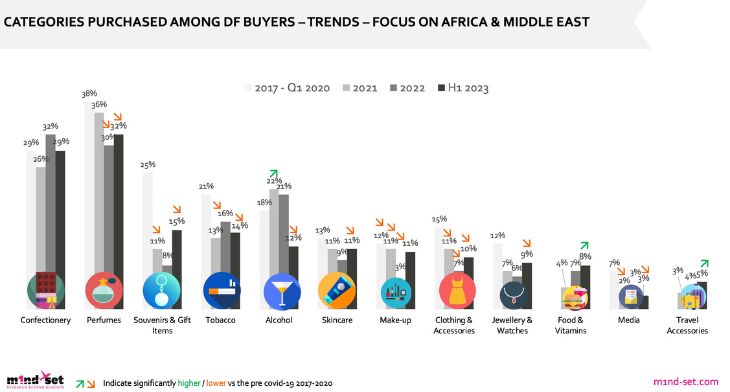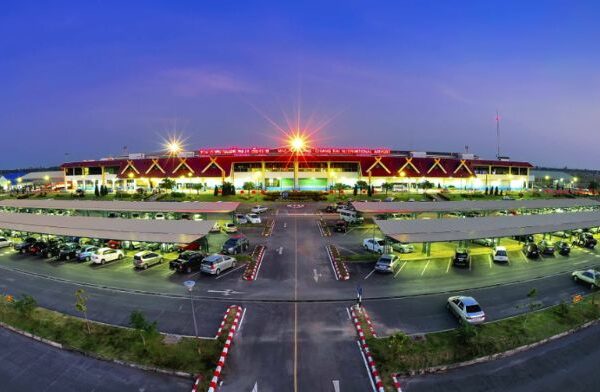


Research into traveller and shopper trends in the Middle East and Africa show that the region is experiencing a robust revival, according to a study conducted by the Swiss travel retail research agency, m1nd-set.
The combined regions will see international departure traffic fall just 6% short of 2019 levels with the Middle East surpassing international departure levels in Q1 2023, compared to 2019 levels. Meanwhile, in Africa air traffic was at around 88% of the same period in 2019.
The data also reveals that Indians account for the highest number of international travellers, when comparing the top nationalities departing on international flights across the region. The Business 1ntelligence Service (B1S) shows 21 million departing passengers in 2023. Egypt follows with 16 million and Saudi Arabia completes the top 3 with 14 million passengers departing internationally. Coming in together in joint fourth position was Pakistan and Israel with 9 million passengers. France, the UK, Morocco, Bangladesh and Ethiopia complete the top 10 ranking for nationalities departing across the Middle East and Africa.
The shopping behaviour analysis shows that perfumes and confectionery were the two most visited categories in H1 2023 in airports across the region. However, while perfume is still the most popular category, the study did show that perfume shoppers have fallen from 49% to 41% between 2017 and H1 this year.
Confectionery has seen a 4% increase in visitors to the category in 2023 and alongside perfumes, souvenirs and tobacco was among the top 4 categories purchased by shoppers from the Middle East and Africa in H1, 2023. But, like the other categories, confectionery saw a decline to the same level as pre-pandemic in H1 this year. Food & vitamins and travel accessories was the only category to see an increase since the pre-pandemic level.
Peter Mohn, CEO and Owner at m1nd-set commented on the research saying: “The research shows some interesting behavioural trends and evolutions, including how footfall and conversion is performing across the region, the evolution of the passenger profiles and how these change the dynamics of the customer segmentation modelling for the Middle East & Africa. We see for example a rise in sustainable tourism and increasing sensitivity to sustainability among shoppers in the region.”
Mohn also underlined that although shoppers are significantly more likely to interact with sales staff than prior to the pandemic, this trend is on the decline, falling 6% since last year. “It’s vital that retail and promotional staff within the stores continue to engage with customers; engaged and engaging frontline staff are of paramount importance for converting browsers into buyers.”
It’s equally important he added, “to ensure staff are continuously trained on how to interpret different shopper segments and understand their priorities and passions. The impact of staff engagement has consistently increased and is well ahead of where it was pre-pandemic, with 80% of shoppers reporting a positive impact of the staff interaction, compared to 62% before the pandemic.”





